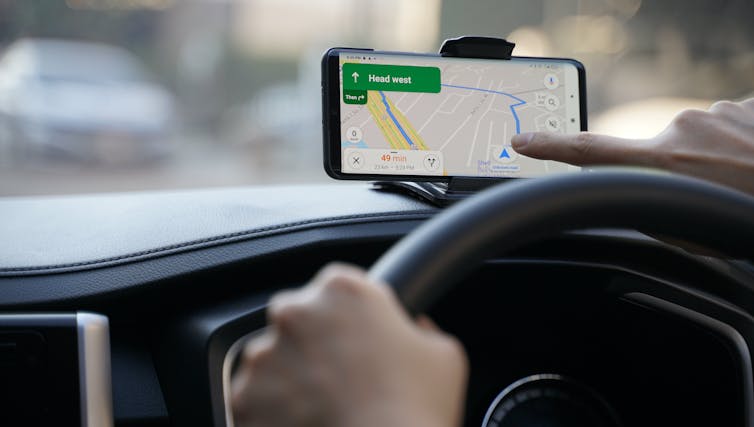| Per leggere l’articolo tradotto in italiano clicca l’icona blu (la quarta da sinistra in fondo all’articolo) google translate . Per un uso professionale e/o di studio raccomandiamo di fare riferimento al testo originale. |

Tapani Rinta-Kahila, The University of Queensland
In 2009, an Air France jet crashed into the ocean, leaving no survivors. The plane’s autopilot system shut down and the pilots, having become reliant on their computerised assistant, were unable to correct the situation manually.
In 2015, a bus driver in Europe typed the wrong destination into his GPS device and cheerfully took a group of Belgian tourists on a 1,200 kilometre detour in the wrong direction.
In 2017, in a decision later overturned on appeal, US prosecutors who had agreed to release a teenager on probation abruptly changed their minds because an algorithm ruled the defendant “high risk”.
These are dramatic examples, but they are far from isolated. When we outsource cognitive tasks to technology – such as flying a plane, navigating, or making a judgement – research shows we may lose the ability to perform those tasks ourselves. There is even a term for our tendency to forget information that is available through online search engines: the Google effect.
As new AI technologies promise to automate an increasing range of activities, the risk of “skill erosion” is growing. Our research shows how it can happen – and suggests ways to keep hold of the expertise you need, even when you don’t need it every day.
Skill erosion can cripple an organisation
My research shows the risk of skill erosion is easily overlooked. In a recent study, my team and I examined skill erosion in an accounting company.
The company had recently stopped using software that automated much of its fixed-asset accounting service. However, the accountants found themselves unable to carry out the task without it. Years of over-reliance on the software had eroded their expertise, and ultimately, they had to relearn their fixed-asset accounting skills.
While the software was rule-based (it did not use machine learning or “AI”), it was “smart” enough to track depreciation and produce reports for many tax and financial purposes. These are tasks that human accountants found very complex and tedious.
The company only became aware of skill erosion after a client found errors in the accounting team’s manual reports. With its accountants lacking sufficient expertise, the company had to commission the software provider to fix the errors.
